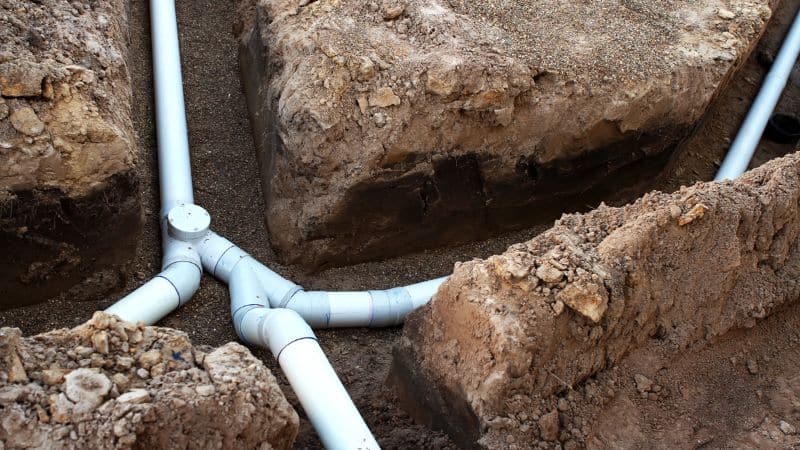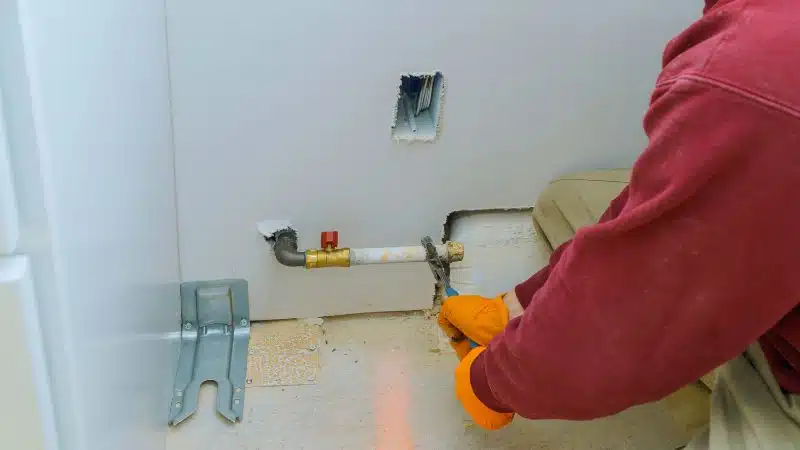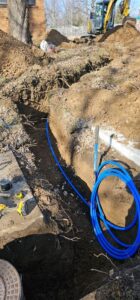Introduction
When it comes to plumbing, the type of pipe material used is crucial for ensuring the longevity and efficiency of your plumbing system. Whether you're upgrading your home or facing a plumbing emergency, understanding different types of pipe materials can make all the difference. Local plumbers in O'Fallon, IL, like Alexander Plumbing & Remodeling LLC, can guide you through these choices, helping you select the right material for Plumber in O'Fallon IL your specific needs.
In this article, we’ll explore various pipe materials commonly used by plumbers, their advantages and disadvantages, and what factors to consider when choosing a pipe type. By the end of this comprehensive guide, you'll not only be equipped with knowledge about plumbing pipes but also understand how to make informed decisions that suit your home's requirements.

Understanding Different Types of Pipe Materials Used by Local Plumbers
Plumbing systems rely on an array of pipe materials, each with its unique characteristics. Understanding these materials is essential if you're looking to maintain or enhance your plumbing system. Let's dive into some of the most common types used by local plumbers in O'Fallon, IL.
1. PVC Pipes: The Versatile Champion
What is PVC?
Polyvinyl Chloride (PVC) is one of the most widely-used materials in modern plumbing. Its lightweight properties and resistance to corrosion make it a popular choice for both residential and commercial applications.
Advantages of PVC Pipes
- Cost-effective: Typically less expensive than other materials. Easy installation: Lightweight and easy to handle. Corrosion-resistant: Does not rust or corrode.
Disadvantages of PVC Pipes
- Temperature sensitivity: Can become brittle in extreme cold. Limited lifespan: While durable, they don’t last as long as some other materials.
2. CPVC Pipes: The Hot Water Specialist
What is CPVC?
Chlorinated Polyvinyl Chloride (CPVC) is similar to PVC but treated to withstand higher temperatures. This makes it suitable for hot water lines.
Advantages of CPVC Pipes
- Heat resistant: Ideal for hot water systems. Chemical resistant: Durable against various chemicals.
Disadvantages of CPVC Pipes
- Higher cost than PVC: Though still relatively affordable. Limited flexibility: Not as easy to install in tight spaces compared to other options.
3. PEX Pipes: The Flexible Solution
What is PEX?
Cross-linked Polyethylene (PEX) has gained popularity among local plumbers due to its flexibility and ease of installation.
Advantages of PEX Pipes
- Flexibility: Can bend around corners without fittings. Freeze resistance: Expands slightly when frozen, reducing breakage risks.
Disadvantages of PEX Pipes
- UV sensitivity: Excessive sunlight can damage PEX pipes. Limited use with certain chemicals: Some substances may degrade it over time.
4. Copper Pipes: The Traditional Choice
What are Copper Pipes?
Copper has been a staple in plumbing for decades due to its reliability and durability.
Advantages of Copper Pipes
- Longevity: Can last over 50 years with proper care. Resistant to bacteria: Natural antibacterial properties help maintain water quality.
Disadvantages of Copper Pipes
- Costly installation: Generally more expensive than plastic alternatives. Corrosion potential: Can corrode under certain conditions if not properly maintained.
5. Galvanized Steel Pipes: The Old Reliable
What are Galvanized Steel Pipes?
These pipes were once the gold standard in plumbing but have largely fallen out of favor due to their susceptibility to rusting over time.
Advantages of Galvanized Steel Pipes
- Sturdy construction makes them resistant to physical damage.
Disadvantages of Galvanized Steel Pipes
- Rusting issues can lead to leaks and contamination.
FAQs About Pipe Materials
What type of pipes are best for residential plumbing?- PVC and PEX are often recommended for residential use due to their balance between cost-effectiveness and durability.
- While it's primarily designed for hot water lines, CPVC can also be used for cold water applications.
- Look for signs like discoloration or leaks; if they have pinhole leaks or corrosion spots, it's time for replacement.
- While they were once common, they can leach harmful substances over time; it's generally advisable to replace them if possible.
- With proper installation and care, PEX can last up to 40 years or more without significant issues.
- While generally safe, using them outdoors or in areas exposed to UV light can lead them to become brittle over time.
Conclusion
Choosing the right pipe material is vital when dealing with plumbing systems. From PVC's versatility and cost-effectiveness to copper's traditional reliability and PEX's flexibility—each option serves distinct purposes that cater specifically to your needs as a homeowner or business owner in O'Fallon IL.
Local plumbers like those at Alexander Plumbing & Remodeling LLC will guide you through your options based on your unique circumstances—be it renovations or addressing urgent repairs—ensuring you make informed decisions tailored specifically for your situation while maintaining high standards within your plumbing systems.
By understanding different types of pipe materials used by local Plumber in O'Fallon IL plumbers, you’re better equipped not just as a consumer but also as an informed individual ready to tackle any plumbing-related challenges that come your way! So whether you're looking at new installations or repairs today—or down the line—remember this guide when considering what's best suited for your home!
This article provides an extensive look into various piping options available in today’s market while emphasizing expertise from local professionals like Alexander Plumbing & Remodeling LLC—a trusted name among Plumber in O'Fallon IL!

